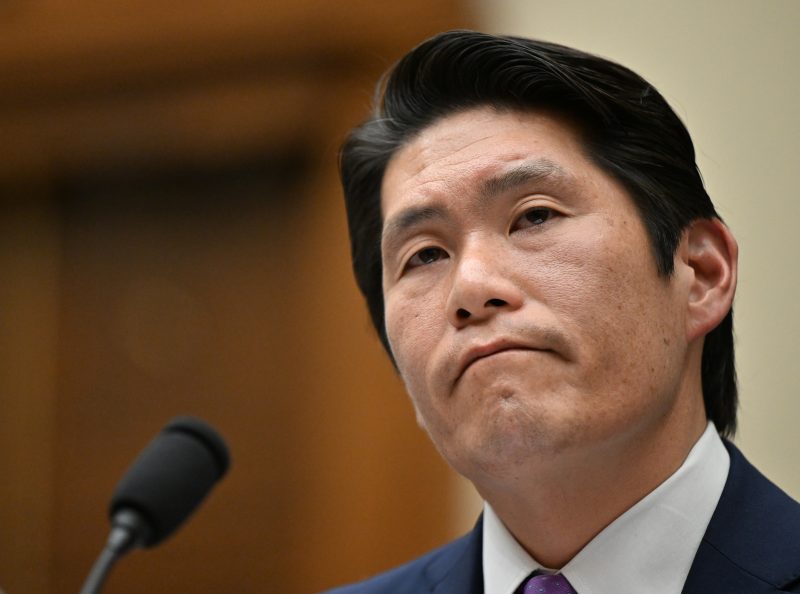Justice Department officials told House Republicans they don’t intend to provide audio recordings of President Biden’s interviews with the special counsel who investigated his handling of classified documents — suggesting that since lawmakers already have the transcripts of those interviews, the request was more about scoring political points than seeking information.
Carlos Uriarte, a senior Justice Department official, sent the letter to Rep. Jim Jordan (R-Ohio), the chairman of the House Judiciary Committee, and Rep. James Comer (R-Ky.) the chairman of the House Oversight and Accountability Committee.
Their demand for the recordings, after already having the transcripts, “indicates that the Committees’ interest may not be in receiving information in service of legitimate oversight or investigatory functions, but to serve political purposes that should have no role in the treatment of law enforcement files,” Uriarte wrote in the letter sent on Monday.
Biden was questioned in October by then-special counsel Robert K. Hur about the classified documents, which were found in 2022 at the president’s Wilmington, Del., home and an office he used after his vice presidency. Their discussion, which unfolded over two days, played a key role in Hur’s determination not to seek charges against Biden.
In his final report, Hur found some evidence that Biden willfully retained classified government materials after he left the vice presidency in 2017 but concluded that there was not enough proof to justify criminal charges. He said that part of his decision was influenced by the consideration that, if prosecuted after his presidency, Biden could be viewed sympathetically, as an elderly but well-meaning man with a failing memory.
Republicans have seized on that characterization.
Jordan and Comer have threatened to hold Attorney General Merrick Garland in contempt if the department doesn’t turn over the audio recordings, but Uriarte said the GOP lawmakers’ anger is unfair, given how much material from the Hur investigation has already been given to them.
“The Committees’ reaction is difficult to explain in terms of any lack of information or frustration of any informational or investigative imperative, given the Department’s actual conduct,” Uriarte wrote. “We are therefore concerned that the Committees are disappointed not because you didn’t receive information, but because you did.”
Uriarte said the Republicans should “avoid conflict rather than seek it.”
The letter also warned that turning over the recordings could have a chilling effect on future attempts by the Justice Department to interview other high-profile people or officials for sensitive investigations.
Prosecutors “might have a harder time obtaining consent to an interview at all,” Uriarte wrote, “It is clearly not in the public interest to render such cooperation with prosecutors and investigators less likely in the future.”
In addition to the transcripts of the Biden interviews, the Justice Department has given Congress transcripts of Hur’s interview with Biden’s former ghostwriter, whose conduct became an important focus of the classified-documents probe. Republican lawmakers are also seeking the audio recordings of those interviews.
Hur’s investigation found that after Biden finished his term as vice president, he shared with the ghostwriter some of the classified information he had written years earlier in notebooks.
The ghostwriter also admitted to investigators that he had deleted some recordings of his book-writing conversations with Biden after he learned there was an investigation, but Hur ultimately concluded no charges against the ghostwriter were warranted because the transcripts of those conversations were not destroyed.





























